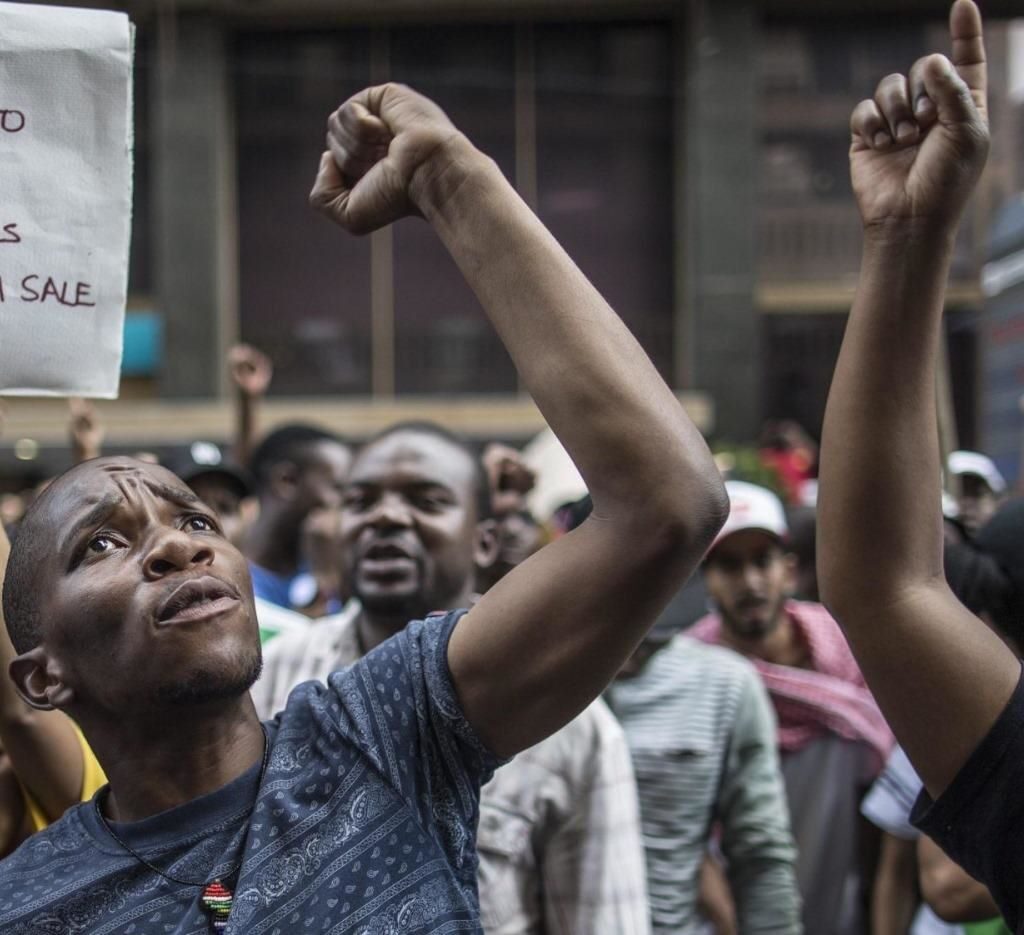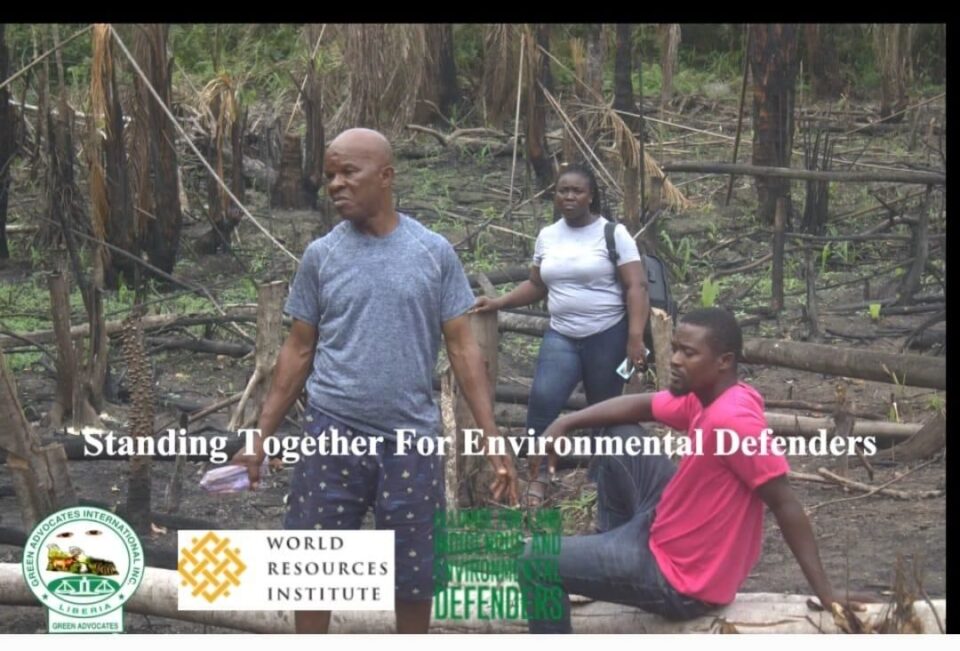As They Face Serious Risk Form Threats, Security Risks And Weak Governance
PHOTO: Grassroots Environmental Defenders
Green Advocates International McDonald and Benson Streets Intersection Monrovia, Liberia
Press Statement
(Monrovia – April 3, 2024) Today, Green Advocates International (Liberia) joins five other organizations in five countries around the world in launching a new global initiative to protect Grassroots Environmental Defenders (GEDs) from rampant threats, security risks, violence and weak governance, with funding from the US State Department.
The initiative, entitled, “Standing Together for Environmental Defenders (STAND), will offer training, financial support and collaborative partnerships to civil society organizations confronting the risks faced by Grassroots Environmental Defenders (GEDs) in Brazil, Guatemala, Mexico, Democratic Republic of Congo, Kenya and Liberia.
Embattled GEDs play a vital role in protecting the environment and their local communities. Their positive impact and need for protection have been formally recognized by the United Nations (UN) Human Rights Council (UN, 2019), the EU (EU Charter of Fundamental Rights), Inter-American Commission on Human Rights (IACHR, 2006), African Commission on Human and Peoples’ Rights (ACJPR, 2004), and in numerous international and regional legally binding multilateral agreements.

However, their rights and role are yet to be adequately recognized by States and private sector actors, and they also face stigmatization and smear campaigns designed to reduce community support, particularly in countries heavily reliant on natural resource extraction and large-scale infrastructure.
In Liberia, the economic, social, cultural, environmental, land, and indigenous rights of defenders continue to face high risks as a consequence of their work.
Liberia is home to diverse indigenous communities with deep connections to their ancestral lands. However, these lands are often threatened by logging, mining, and agricultural expansion, while GEDs are subjects of repression and marginalization in their own country.
In the last decade, Green Advocates International has supported the work of HRDs focusing on the current climate crisis and the environmental and social impacts related to the operations of multinational corporations and how these collectively have escalated the already existing precarious situation GEDs are faced with, including the systemic the violence, intimidation, arrest, imprisonment among others.
The recent protest in Kinjor, Grand Cape Mount County, in which three grassroots defenders were killed, is exemplary of the dissatisfaction in communities affected by the operations of multinational concession companies across the country.
From Bea Mountain in Grand Cape Mount, to Mano Oil Palm in Grand Cape Mount and Bomi, to MNG Gold in Bong, to MOPP in Maryland, to ArcelorMittal in Nimba, to LAC and EPO in Grand Bassa, to Golden Veroleum in Sinoe and Salala Rubber Corporation and Firestone Liberia rubber company in Margibi Counties, the plight of grassroots defenders and indigenous communities are the same. They are exposed to harsh conditions and brutality perpetrated by these foreign companies with the support of state security.
Sadly, the Government of Liberia appears to only be keen on protecting investors, but care less about the sufferings and violations citizens face daily. GEDs have been forcefully uprooted from their ancestral lands and livelihoods with impunity, leaving many to scramble for survival.
The STAND Initiative will strive to expand available resources and strengthen the ability of GEDs to understand and use existing mechanisms to access environmental information, participate in environmental decision-making processes and enforcement, access justice, and leverage coalitions and platforms as part of their advocacy.
The STAND project is led by The World Resources Institute (WRI) and the Alliance for Indigenous, Land and Environmental Defenders, (ALLIED), a global network of civil society, donors and defenders that drives multistakeholder action and systemic change for the recognition, support, and protection of GEDs.

